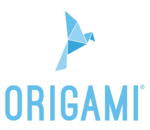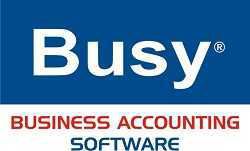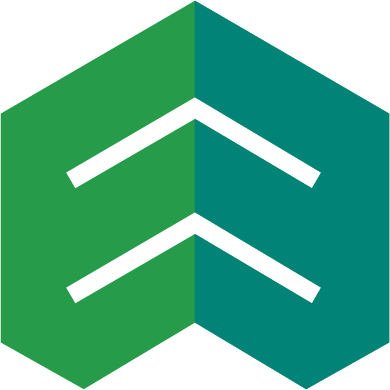Yes, most current order management systems can be accessed from numerous devices and platforms. This enables consumers to access and manage orders from anywhere with an internet connection. Users can use the software on desktops, laptops, tablets, and smartphones, and it is compatible with popular operating systems like Windows, MacOS, iOS, and Android. Because of its flexibility and accessibility, order management software is a useful tool for organizations of all sizes.
List of 20 Best Order Management Software
Sphere, our powerful SaaS solution crafted for businesses seeking to offer online services. With robust branding capabilities, Sphere provides a fully customizable platform to cater to your unique requirements. From simplifying the online service pro...Read More Sphere by Elluminati
Store Manager for PrestaShop solution for managing your PrestaShop store. With its easy-to-use interface, you can simplify your business operations and improve performance. Say goodbye to tedious tasks and unnecessary expenses, as Store Manager effic...Read More Store Manager for Prestashop
Ivy Direct Store Delivery (DSD) software – solution for effortless order management, inventory processing, digital collections, and promotional activities. With up-to-date information and a centralized database, you can rely on Ivy DSD as your...Read More Ivy Direct Store Delivery
CRM@MCIAPPS is a business solutions software that revolutionizes your entire business process. Our highly customizable and compatible features cater to every stage of your business operations, ensuring a streamlined and reliable source of information...Read More CRM@MCIAPPS
Enquire Management Software is a tool for managing enquiries and responses from various channels. With its user-friendly interface, this software streamlines your enquiry process, allowing for increased organization and productivity. Say farewell to...Read More Enquiry Management
Ivy Retail Execution solution for optimizing your retail processes. Eliminate the hassle of store setup, inventory management, ordering, and payment collection. Our software guarantees precise reconciliation of product quality and daily collections...Read More Ivy Retail Execution
Origami is a ERP software tailored for Startups and SMEs. With its efficient Web App functionalities, Origami provides a comprehensive suite of solutions for Billing & Invoicing, Quality Control, Accounting Integration, Reporting/Analytics, and Press...Read More Origami
Multiorders is a cloud-based tool created for small and medium-sized businesses and online retailers. Its main objective is to simplify the process of managing orders and inventory by seamlessly integrating with all sales platforms and shipping servi...Read More Multiorders
Tailorsapp is a ERP solution for businesses in the fashion, bespoke, lifestyle, retail, and manufacturing industries. Our software simplifies inventory management, materials tracking, production processes, job worker management, barcoding, and billin...Read More Tailorsapp
Experience efficient lead management with Dquips CRM. Our powerful solution simplifies your lead acquisition, qualification, verification, assignment, and prospecting processes. Stay on track with your sales targets and boost lead conversions with ou...Read More Dquip's CRM
Alpha Retail Billing - the top accounting software for the retail sector. Simplify your accounting processes and create polished invoices and reports in multiple formats. Alpha has everything you need, from managing accounts to generating reports. Sa...Read More Alpha Retail Billing
BUSY Accounting solution for streamlined accounting and management in your business. With powerful features such as multi-location inventory, support for multiple currencies, order processing, and intelligent decision-making tools, BUSY caters to a d...Read More Busy Accounting
EasyEcom the cloud-based SaaS solution designed to streamline and optimize your online, offline, and wholesale business management. Our user-friendly platform allows you to efficiently handle all aspects of your operations through a single, centraliz...Read More EasyEcom
Aroma - the premier software solution for enhancing your workspace. Elevate your senses and boost productivity with our customizable scents, carefully designed to promote a sense of well-being. Our easy-to-use interface allows for effortless control...Read More aroma
Torqus Online Ordering is a solution designed to elevate the online food ordering experience for restaurants and F&B outlets. With its user-friendly website and app, setting up your own ordering platform is a breeze. This versatile module offers a si...Read More Torqus Online Ordering
EQMS solution for effective lead management. Designed to meet the unique needs of your business, this CRM tool offers a user-friendly platform to capture vital customer data and set timely reminders for follow-ups. Stay organized and improve your sal...Read More EQMS
Velocify LeadManager is a sales automation tool tailored for high-velocity sales teams. Our platform accelerates the lead response process, equipping your team with the tools they need to efficiently close deals. With Velocify LeadManager, rest assur...Read More Velocify
GOFRUGAL Pharmacy solution for pharmaceutical distributors, stockists, and super-stockists. This cutting-edge distribution management software optimizes processes such as sales, purchase, inventory management, re-ordering, financial accounting, and o...Read More GOFRUGAL Pharmacy
Smart Payables is a software for streamlining your SAP Accounts Payable process. Say goodbye to manual tasks and hello to efficiency with features like scanning, invoice posting, and workflow optimization. No extra hardware required, and you can be u...Read More Smart Payables
Zeffu, a cloud-based software that simplifies the purchasing process for restaurants. Our SaaS technology takes the hassle out of supplier purchasing for both independent restaurants and chains. Say farewell to time-consuming manual processes and wel...Read More Zeffu
Learn More About Order Management Software
- What Is Order Management Software?
- What Are The Recent Trends In Order Management Software?
- Benefits Of Using Order Management Software
- Important Factors To Consider While Purchasing Order Management Software?
- What Are The Key Features To Look For In Order Management Software?
- Why Do Businesses Need Order Management Software?
- How Much Time Is Required To Implement Order Management Software?
- What Is The Level Of Customization Available In Order Management Software?
- Which Industries Can Benefit The Most From Order Management Software?
- Conclusion
What Is Order Management Software?
Order management software (OMS) is a sophisticated tool for efficiently handling and processing customer orders from the moment of purchase through delivery. It is the foundation of any company's sales operations, facilitating flawless coordination among divisions and maintaining an orderly flow of orders. At its foundation, order management software automates critical functions like order input, tracking, inventory management, and order fulfillment, allowing firms to optimize operations and improve customer satisfaction.
This program allows businesses to quickly manage orders from a variety of channels, including online and in-store transactions, phone orders, and more. One of the primary advantages of order management software is its ability to interact with other systems, such as accounting and customer relationship management (CRM) software. This not only makes order processing more efficient, but it also provides vital information about client behavior and purchasing habits.
Furthermore, order management software includes advanced capabilities like real-time order tracking, automated order routing, and customisable reports, which help organizations keep on top of their operations and make data-driven decisions to improve overall performance. When selecting an order management software, it is critical to evaluate your company's specific requirements. Look for a system that has the necessary capabilities, is user-friendly, and can scale with your company's growth. In addition, look for integration possibilities with your existing systems and analyze the software's pricing structure to ensure it fits within your budget.
What Are The Recent Trends In Order Management Software?
In recent years, the desire for efficient and optimized order management operations has increased the adoption of order management software. With the growing popularity of e-commerce and online shopping, firms must have a complete order management system to ensure that purchases are fulfilled on time and accurately. One of the most significant advancements in order management software is the incorporation of artificial intelligence (AI) and machine learning (ML).
These modern technologies enable the automation of manual operations like order processing and inventory management, resulting in faster and more accurate order fulfillment. Another trend is the integration of omnichannel capabilities into order management systems. With an increasing number of channels through which customers can make purchases, businesses want a centralized system that can manage orders from several channels, including online marketplaces, social media platforms, and brick-and-mortar storefronts.
Mobile order management is also gaining popularity since it enables on-the-go access to order data and real-time order tracking. This trend is especially advantageous for companies with sales teams or field staff who need to access order information while away from their desk. In terms of payment processing, there has been a shift towards integrating different payment options, such as mobile wallets and contactless payments into order management software.
This allows businesses to provide a seamless and convenient checkout experience to their customers. Finally, there is an increasing emphasis on sustainability and environmental friendliness, which has resulted in the development of "green" or sustainable order management software. These solutions enable organizations to track the carbon footprint of their orders and make data-driven decisions that lessen their environmental impact.
Benefits Of Using Order Management Software
Order management software is a strong tool that simplifies and improves the process of managing orders for organizations. It is a comprehensive solution that allows for effective order management from placement to fulfillment, resulting in a seamless experience for both the business and its customers.
In this buyer's guide, we'll go over the main advantages of adopting order management software to help you make an informed purchasing decision.
1. Centralized Order Processing: One of the most significant benefits of employing order management software is its ability to consolidate and automate the whole order processing operation. This implies that all orders, regardless of where they come from, can be controlled and tracked in one spot. This reduces the need for human data entry while reducing the likelihood of errors, delays, and miscommunication.
2. Real-Time Inventory Management: Businesses can use order management software to track their inventory levels in real time. This helps to avoid stockouts and backorders, ensuring that consumers always get their orders on time. The platform also gives information on inventory patterns, allowing firms to make data-driven decisions to optimize inventory levels and save carrying costs.
3. Improved Order Accuracy: The usage of order management software greatly enhances order accuracy. Automated processes and real-time updates significantly reduce the likelihood of improper orders, duplicate orders, or inaccurate pricing. This not only increases consumer pleasure, but also protects organizations from potential losses and reputational harm.
4. Efficient Order Fulfillment: Order management software speeds up the entire order fulfillment process, from selecting and packing to shipping and delivery. The system offers all of the required information, such as customer information, product descriptions, and delivery addresses, to ensure that the correct things are delivered to the correct customers. This minimizes the possibility of errors and delays, leading to faster and more efficient order processing.
5. Superior Customer Experience: Customers increasingly expect purchasing experiences that are frictionless and convenient. Order management software enables organizations to achieve these expectations by providing customers with a smooth omnichannel experience. Customers can submit orders through any channel (online, phone, in-store, etc.), and the software will ensure that the orders are processed consistently and accurately throughout all channels.
6. Improved Data Management And Reporting: Order management software provides firms with a consolidated database including all order-related data. This information can be utilized to create reports and analytics, which can provide significant insights into corporate operations, forecasting, and decision-making.
7. Cost Savings: By automating laborious processes and optimizing workflows, order management software saves firms time and money. It removes the need for human labor and decreases the chance of errors, which results in long-term cost benefits for enterprises.
Important Factors To Consider While Purchasing Order Management Software?
When choosing order management software, there are several critical elements to consider to ensure the best fit for your company. From optimizing processes to improving customer happiness, the appropriate order management software may have a big impact on your organization.
To help you make an informed decision, below are the most important elements to consider when selecting order management software.
1. Integration Capabilities: One of the most important considerations when selecting order management software is its integration capabilities. Your software should work easily with your current systems and platforms, such as inventory management and accounting software. This not only helps you minimize data duplication, but it also ensures a consistent flow of information across departments.
2. Scalability: As your firm expands, so will the number and complexity of orders. As a result, it is critical to invest in order management software that can meet your current and future requirements. Look for software that supports scalability, such as the capacity to add new users, features, and integrations without interrupting your business. This will save you the headache and cost of switching to new software in the future.
3. Order Tracking And Visibility: An effective order management system should give real-time visibility and tracking of orders. This tool allows you to track the status of each order, from the moment it is placed until it is delivered. It also assists you in identifying and resolving any issues that may develop during the fulfillment process, resulting in a smooth and timely delivery to your clients.
4. Customization: No two organizations are alike, and your order management software should reflect this. Look for software that may be customized to meet your specific business demands. This allows you to add or remove features, create custom reports, and tailor the user experience to meet your needs.
5. Mobile Access: With the development of e-commerce and remote work, having access to your order management software on the go is now more important than ever. Consider investing in mobile-friendly software that allows you to handle your orders, maintain inventory, and stay up to current on your business operations from anywhere, anytime.
6. Customer Support: Technical problems and inquiries are unavoidable when using any product. That's why it's critical to get order management software that provides dependable and timely customer service. This could include using phone, email, chat, or a knowledge base to troubleshoot problems and get answers to your questions.
What Are The Key Features To Look For In Order Management Software?
Order management software helps to streamline the entire order management process, from original placement to final delivery. With the growing demand for faster and more efficient order processing, businesses must invest in trustworthy and feature-rich order management software. However, with so many options available, it might be difficult to choose the best one for your organization.
To assist you with this process, these are the important characteristics to look for in order management software:
1. Order Tracking And Status Updates: One of the most crucial aspects of order management software is the ability to track and monitor orders in real time. It should include detailed information on the status of each order, such as order processing, shipping, and delivery. This enables firms to proactively address any delays or issues that may develop while keeping customers informed.
2. Inventory Management: An effective order management system should be integrated with inventory management to ensure accurate and real-time stock levels. This feature helps firms minimize stockouts and overselling, which leads to higher customer satisfaction and cost savings.
3. Customer Data Management: The program should include a centralized database for storing customer information and order histories. Businesses may now provide clients with a more personalized and seamless experience while also better targeting their marketing efforts.
4. Multi-Channel Support: In the age of omnichannel retail, the best order management software should handle several sales channels, including online, in-store, and mobile. This guarantees that all orders are aggregated in a single system, making them easier to manage and fulfill.
5. Automation And Integrations: Look for software that can automate tasks and link with other critical business systems such as accounting or shipping. Automation speeds up the order fulfillment process, lowers manual errors, and improves efficiency.
6. Reporting And Analytics: Strong reporting and analytics capabilities are required to monitor critical indicators such as order quantities, customer behavior, and sales trends. This data can help organizations make more informed decisions and identify areas for development.
7. Mobile App: Having a mobile app for order management software enables firms to manage orders on the go and receive real-time updates. This is especially useful for shops who have to fulfill orders in-store or during events.
Why Do Businesses Need Order Management Software?
Order management software is an essential tool for organizations of all kinds that handle a large volume of orders. It simplifies and automates the entire order fulfillment process, from receiving and processing orders to shipping and invoicing. In today's fast-paced and competitive company environment, having a well-organized order management system is critical for staying ahead of the competition.
One of the primary reasons why firms use order management software is to increase overall efficiency and lower costs. Businesses that use manual order management systems are more likely to encounter errors and delays, which can lead to unsatisfied consumers and greater operational costs. However, order management software links and synchronizes all phases of the order fulfillment process, reducing errors and delays.
This leads to faster processing times, more productivity, and lower operating costs. Another significant advantage of order management software is enhanced accuracy and visibility. It consolidates all order information, including customer and product details, inventory levels, and shipping information, into a single location. This eliminates the need for manual data entry and the associated errors.
It also gives businesses real-time visibility into order status, inventory levels, and customer data, allowing them to make smarter decisions and provide better customer service. Order management software also includes capabilities like order tracking, automatic shipping, and invoicing, which help firms streamline their order fulfillment processes. It automates operations like creating shipping labels and tracking numbers and issuing electronic invoices, saving firms time and lowering the chance of human error.
Furthermore, having a centralized system for all orders enables firms to effortlessly fulfill orders from numerous sales channels, including e-commerce platforms and physical locations. Furthermore, order management software enables firms to develop and grow. As a company grows and receives more orders, it can become difficult to manage them manually. Order management software can handle a large number of orders while maintaining accuracy and efficiency, making it a critical tool for growth.
How Much Time Is Required To Implement Order Management Software?
The implementation time for order management software varies depending on a number of criteria, including the size of your company, the complexity of your procedures, and the exact features and customisation you desire. On average, it can take between a few weeks and a few months to properly develop and integrate the program into your operations.
The first stage in the implementation process is to examine your present order management system and determine how the software might simplify and improve it. This could include sketching out your workflows, identifying pain areas, and creating goals for the software to meet. The program must then be adjusted and tailored to meet your specific business requirements.
This can include defining user roles and permissions, developing templates and workflows, and interacting with other systems like your e-commerce platform or accounting software. Once the program has been configured, you will need to move your data from your previous system. This could include client information, product catalogs, and order histories. The time required for data migration will be determined on the quantity and quality of your data.
Finally, the program will have to be tested and trained by your team. This can take anywhere from a few days to several weeks, depending on the software's complexity and the number of your team. Overall, while implementing order management software may require some time and effort, the benefits of enhanced efficiency and accuracy in order processing will make the investment worthwhile. Working closely with your software vendor during the deployment process is critical to ensuring a smooth and successful transition.
What Is The Level Of Customization Available In Order Management Software?
When selecting order management software, the level of customization available is a crucial thing to consider. This refers to the software's capacity to be adapted to your unique business requirements and operations. Most order management software allows for some customization to meet the needs of various firms. This could include features like bespoke workflows, user interfaces, reports, and dashboards.
Some powerful software even supports custom coding and integration with other systems. However, the extent of flexibility provided varies depending on the software. Some software may have limited modification choices, but others provide a high level of flexibility. Before making a purchase, you should assess your business needs and establish the extent of customization required for your order management operations.
This will help you select software that is compatible with your company's goals and operations. Consider the simplicity of modification. Some software may necessitate technical knowledge or further training to customize, but others may have user-friendly interfaces and drag-and-drop functionality for simple modification. It is also critical to evaluate the assistance and resources available for customisation.
Some software companies give dedicated customer assistance as well as tools like tutorials, guidelines, and forums to help with customization. Overall, while selecting order management software, carefully assess the level of customization available to ensure it suits your company's requirements and improves your order management operations.
Which Industries Can Benefit The Most From Order Management Software?
When it comes to order management, any industry can benefit from using an Order Management Software (OMS) solution. However, the usage of OMS can have a substantial influence and increase in efficiency in certain businesses. Retail is one of the most likely industries to gain from OMS. With the development of e-commerce and omnichannel shopping, merchants are challenged to manage and fulfill orders from different sales channels.
OMS allows retailers to streamline their order processing, inventory management, and shipping procedures, which leads to faster order fulfillment and more customer satisfaction. Manufacturing is another industry that could benefit from OMS. With manufacturing's complicated supply chain and production processes, a centralized order management system is critical. OMS enables producers to track orders in real time, manage production schedules, and assure prompt delivery to customers.
OMS has the potential to transform firms in the wholesale and distribution industries. With high order volumes and tight delivery deadlines, OMS can assist these firms stay on top of their orders, manage inventory levels, and assure fast and correct order fulfillment. Food and beverage industries can benefit significantly from the use of OMS. With perishable products and tight regulatory standards, having a strong order management system in place is essential. These organizations can use OMS to manage their orders, track expiry dates, and maintain regulatory compliance.
Conclusion
To summarize, selecting the appropriate order management software for your company is critical for streamlining processes, increasing productivity, and improving customer happiness. With so many options on the market, it is critical to carefully examine your business objectives and choose a solution that meets your specific requirements. When making your decision, take into account scalability, integration capabilities, user friendliness, customer support, and pricing.
Remember to properly study the vendor and their reputation, read customer reviews, and use free trials to try the program before making a buy. Investing in reliable order management software can boost your company's overall success and set you apart from the competition. We hope this buyer's guide has helped you make an informed decision about which order management software is best for your organization.
Whether you are a small start-up or a major corporation, there is a solution available that will help you optimize your order fulfillment process and push your business to the next level. Consider your company's specific requirements and select software that can grow and change with you over time. Best wishes on your road to optimizing your order management process!
Order Management Software FAQ's
Can Order Management Software Be Accessed Across Multiple Devices And Platforms?
Is Order Management Software Future-Proof And Adaptable To Emerging Technologies Like AI, Blockchain Or IoT?
Order management software is continuously changing to keep pace with new technologies. Many software suppliers have already integrated AI, blockchain, and IoT technologies into their platforms.
These technologies have the potential to increase order management efficiency, accuracy, and visibility. Investing in modern and innovative order management software will help you future-proof your firm and stay ahead of the competition. Regular updates and upgrades ensure compatibility to any new technologies on the market.
Is There A Free Trial Offered To Assess Order Management Software Before Committing?
Yes, many order management software vendors provide a free trial period so that potential customers can test the product before making a commitment. This enables organizations to evaluate the functionality and applicability of the program for their requirements. During the trial, organizations can explore features, process orders and transactions, and assess the software's usability. This hands-on experience allows you to make an informed decision about investing in the software.
Does Order Management Software Offer Data Security Features And Meet Regulatory Compliance Standards?
Yes, most order management software includes data security features such as encryption, secure connections, and user access controls to protect sensitive data. They also conform with regulatory standards such as GDPR and HIPAA, giving them a safe option for businesses to manage their orders. To prevent data loss, order management software typically includes regular backups and disaster recovery plans.
Can Order Management Software Integrate Seamlessly With Existing Tools And Platforms?
Yes, most current order management software systems integrate seamlessly with existing tools and platforms. This enables organizations to optimize their operations by integrating order management processes with other systems, such as inventory management or accounting software.
Businesses can use integration capabilities to remove manual data entry, reduce errors, and increase overall productivity. It also improves data visibility and connectivity across departments, resulting in more informed decisions and more customer satisfaction.






















